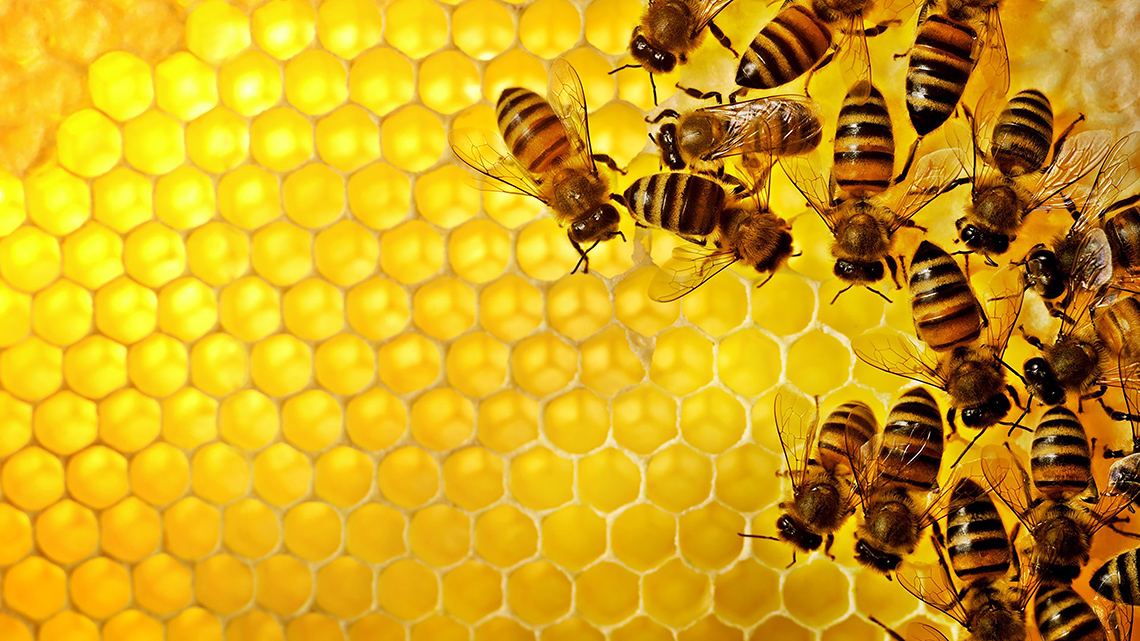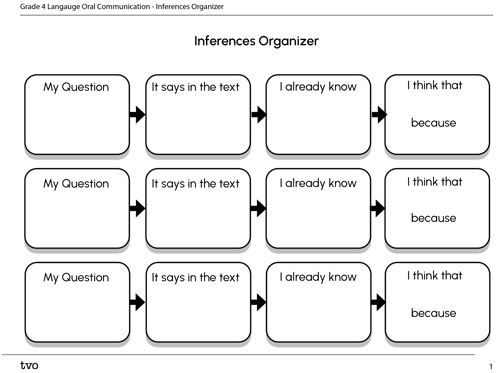Minds On
Fish talk
Let’s explore the following Fish Talk with Leo video.
- Before beginning the video, consider what might this video be about?
- As the video continues, consider what kinds of strategies you would use during the video to explore the content.
- After you have finished exploring the video, consider what kinds of strategies you might use to reflect on the ideas in the video.
Action
Strategies
In Minds On, you explored the story of how scientists and kids are helping the Atlantic salmon in the Inner Bay of Fundy.
You may have used different strategies before, during, and after exploring the videos to understand the ideas presented. You may have thought of different questions, noticed the sequence of the video, and considered how to summarize the main ideas.
One of the strategies that we can use to understand a new oral text is making inferences.
Background knowledge + evidence = inference
You might have used your prior knowledge to understand some of the information in the Minds On video.

Now, we will practice making inferences.
We can use clues from the text and our own experience to make an inference or guess about the ideas in a text. In order to start making inferences, we can follow 4 steps:
- Step 1: Ask questions about the text to help us focus on specific information.
- Step 2: Make notes of the clues we find in an oral text.
- Step 3: Add our own thoughts and draw from our experiences.
- Step 4: Use the sentence stem "I think…(inference) because…(evidence)" to create an inference.
For example, in the Minds On video, we might ask the question, why does Jim talk about how salmon is important for all Canadians?
Press the title of each clue to learn more about them.
Jim says salmon is a type of species that is important to all Canadians. They feed people and animals and leave nutrients in the water.
Text Clues
I know that we have to keep our bodies of water clean so that we can protect the wildlife that live there.
Prior Knowledge
I think Jim talks about how salmon is important to all Canadians and to the animals in the wild because in order to make sure the salmon survive to live and feed the people and animals that depend on them, it is important to keep the Bay of Fundy clean and unpolluted.
My Inference

Let’s return to the Minds On video.
Student Success
Think-Pair-Share
Note to teachers: See your teacher guide for collaboration tools, ideas and suggestions.
Complete the Inferences Organizer in your notebook or using the following fillable and printable document.
Press the ‘Activity’ button to access Inferences Organizer.
Connections
Connections
How was exploring the video a second time different?
Consolidation
Honeybees
Now, you will practice making inferences with a new video. Explore the TVOK News episode on protecting the honeybees at Hillcrest Mall.

Brainstorm
What do you think?
Complete the Inferences Organizer in your notebook or using the following fillable and printable document.
Student Success
Think-Pair-Share
How can you use making inferences as you explore future oral texts?
Apart from making inferences, what kinds of other strategies could you use before, during, and after exploring an oral text?
Note to teachers: See your teacher guide for collaboration tools, ideas and suggestions.
Reflection
As you read through these descriptions, which sentence best describes how you are feeling about your understanding of this learning activity? Press the button that is beside this sentence.
I feel…
Now, record your ideas using a voice recorder, speech-to-text, or writing tool.
